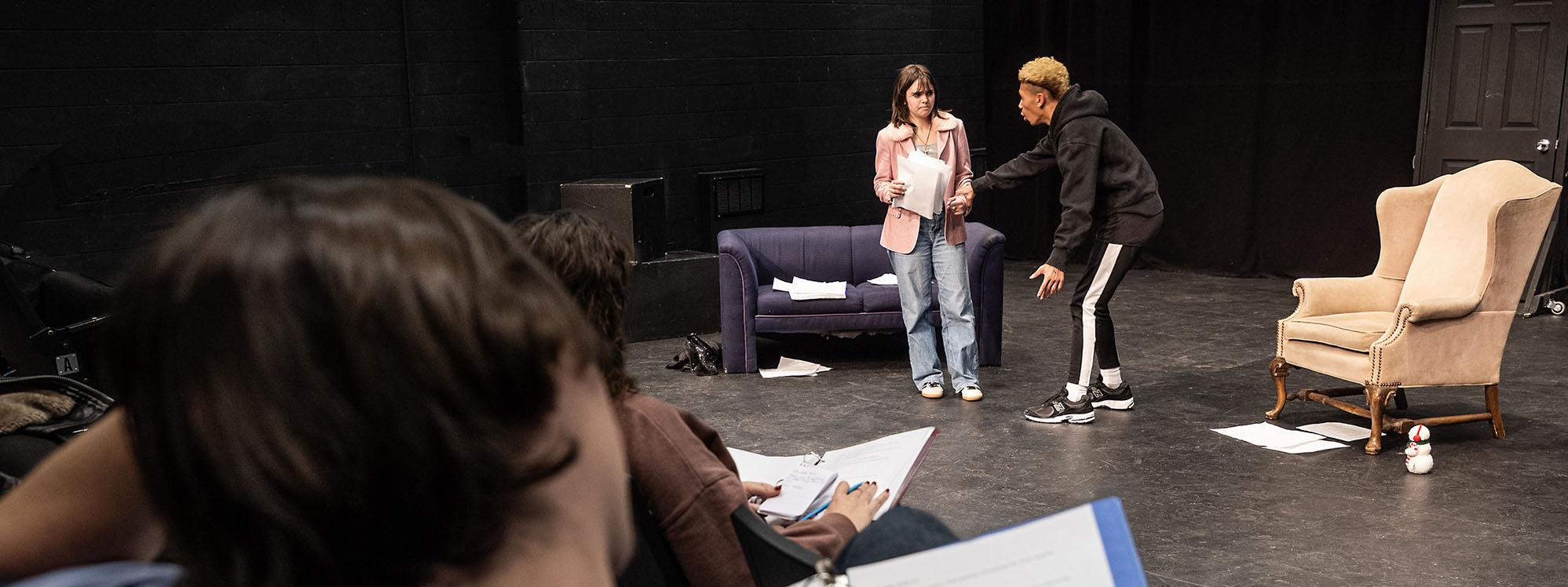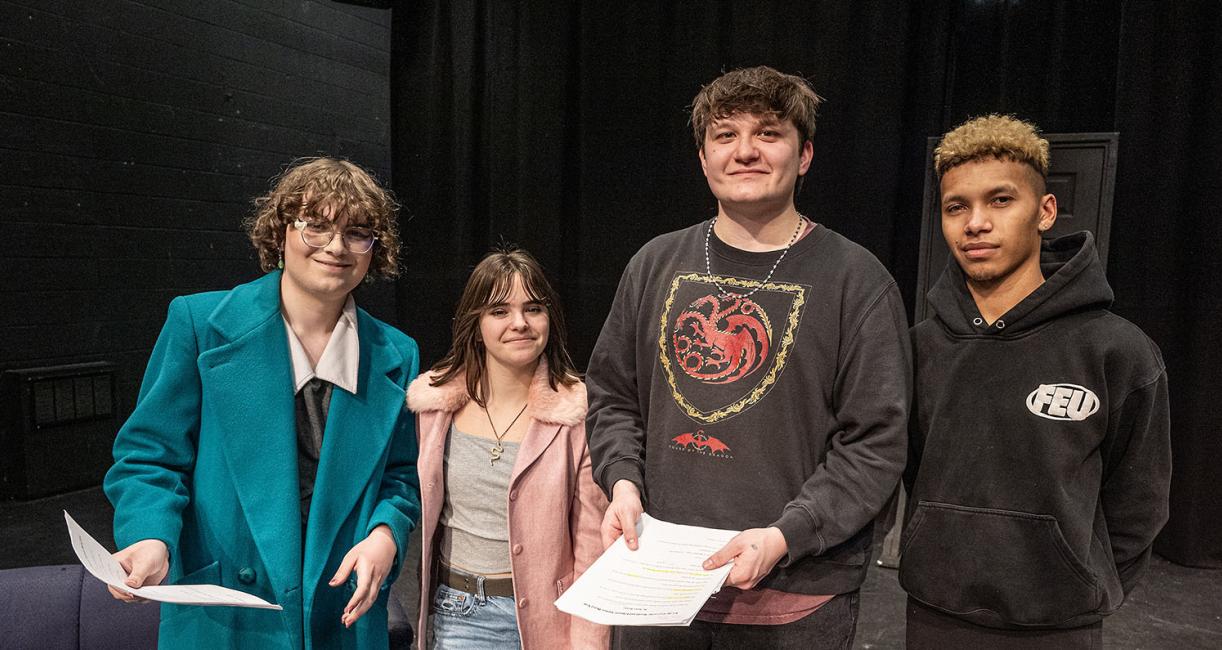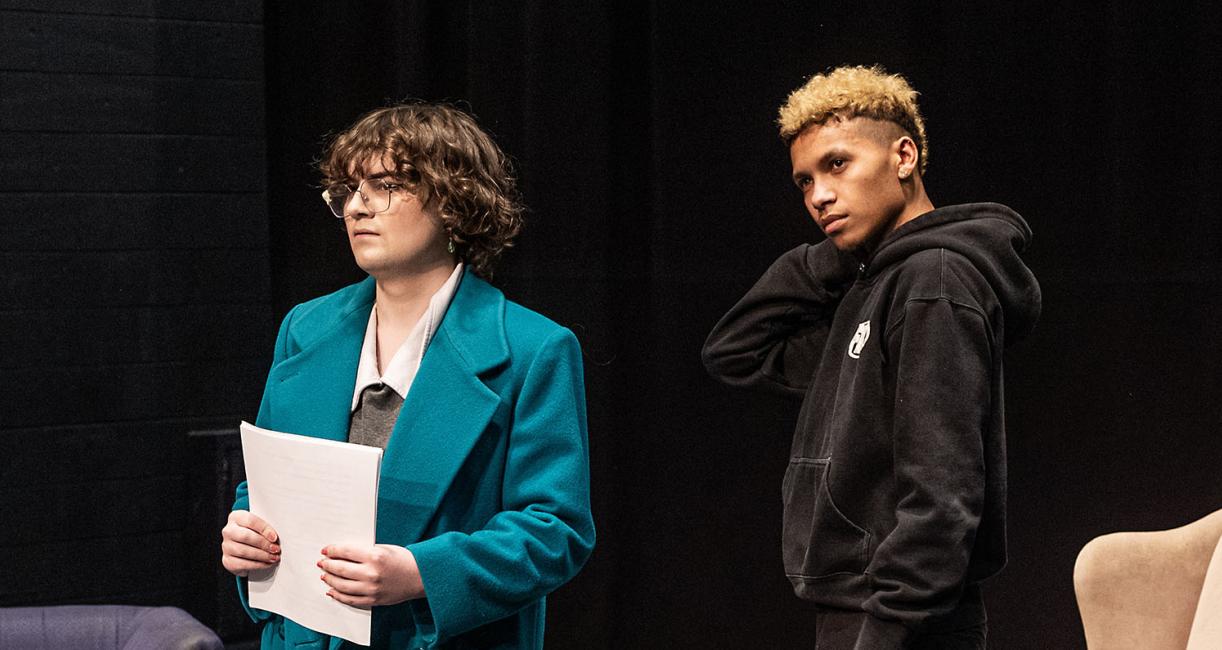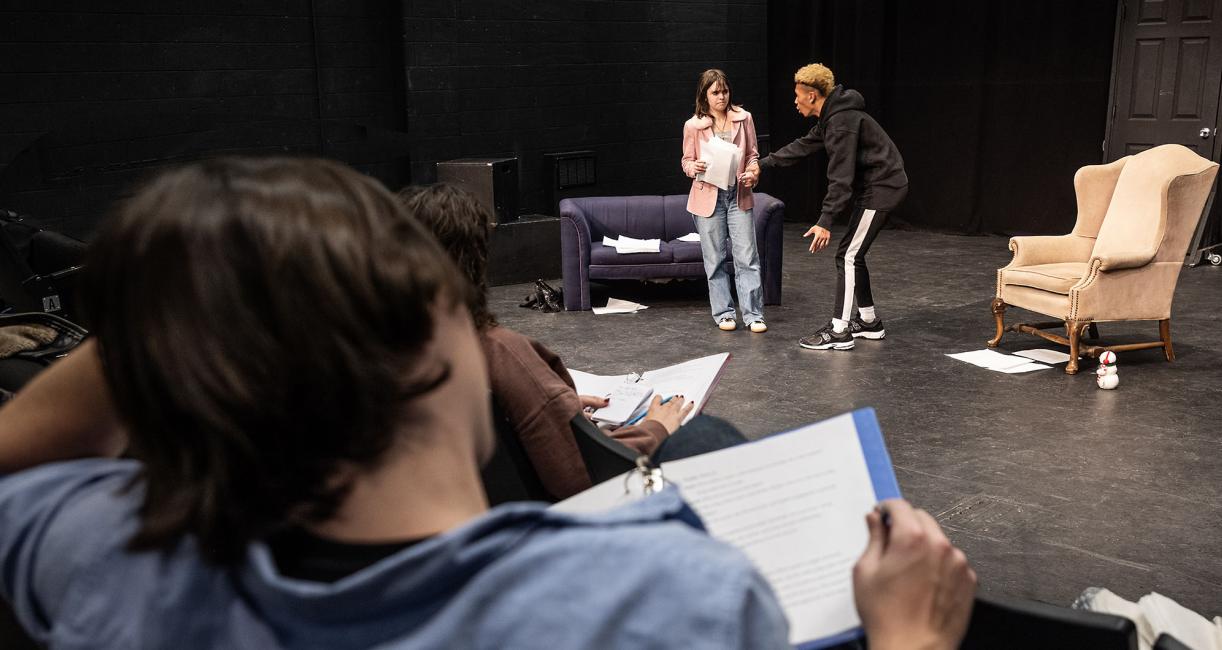



Students test themselves and the clock to present 24-hour plays
By Blake Sebring
December 18, 2024
When he got home after the initial 8 p.m. meeting, sophomore Bailey Weaver faced the biggest challenge yet to his dream of becoming a writer. The temptation was to look at the clock every five minutes while his available time ticked away.
On Dec. 6, Weaver participated in the 24-hour plays for the Department of Theatre at Purdue University Fort Wayne. Knowing a director and three actors were counting on him, Weaver stayed up late to create a 14-page, 11-minute play called “It’s the end of the world (insert answer here) you.”
The play was one of five presented the next night in the Studio Theatre at Kettler Hall, drawing a full house of friends, family, and classmates. While four other writers created comedies, Weaver started writing for laughs but quickly switched to a more tragic theme. After a few expectant laughs in the beginning, the audience became silently immersed in his drama, which included a murder and two suicides.
“Even though it was really dark at the end, I just sat there with a big, cheeky smile because I was so happy to see something I had written being brought to life,” Weaver said. “Just writing and being able to sit back and watch other people enjoy what I do was so nice to see. I’m going to succeed because people were made silent by what I created, and it makes me happy that I made them think.”
The rules behind the 24-hour plays are simple, but lead to the showcase’s complexity. Directors, writers, and cast meet at 7 p.m. Friday, with actors arriving in costumes they put together and bringing a prop. Consisting of a writer, director, and three actors, groups are selected and split before brief discussions to help the writers with ideas. An hour later, the writers are given 12 more to create plays usually lasting 10 to 15 minutes.
The casts return at 8 a.m. to discover the scripts and start rehearsing, while the writers leave to catch up on missed sleep.
“They really pull off some amazing things,” said Bev Redman, chair of the Department of Theatre and this year’s initiator of the exercise. “That audience just loves it because it is fun to see what happens.”
The goal is to kickstart creativity and confidence from writers and directors who are usually juniors and seniors and actors who are predominately freshmen and sophomores. It’s a worthy exercise in preparing students to adapt to tight deadlines under the pressure of the moment to see if they can produce and tell a worthy story.
The process is an accelerated version of what takes place over several weeks during major productions. Set pieces, props, and costumes are developed as actors get to know and grow into their characters. And there’s plenty of practice, so directors can refine everything. Sometimes the bare ingredients produce magic because there’s no time to overthink.
“This project specifically taught me a lot about adapting my version of the process to my actors and how they feel,” said junior Chase Bills, who directed Weaver’s play. “Our show was really emotional and drained emotional batteries quickly during rehearsals.”
Besides providing entertainment, the goal is to make the participants realize they are getting good at what they’re doing. All leave with more confidence and a hunger to try bigger roles.
“Watching everyone do it was phenomenal because I got to see the process from them reading it the first time to the last act,” said freshman Emma Crites who served as a stage manager. “Sometimes, it was a little bit improvised, but they knew where they were going, and they knew almost how to get there. That was a really interesting process because I had the script in front of me, and I knew when they were struggling to pick it up, but the audience couldn’t tell because they were doing so well on stage and it was still flowing.”
For freshman Isabelle Shenfeld, this was her first dramatic role and her first death scene after concentrating on musicals .
“The fact that I learned all of that and did it—and people enjoyed it—maybe I’m not as bad at this as I thought,” Shenfeld said. “I went into it thinking I wasn’t that strong, but by the end of it people actually liked it, and that was pretty cool.”
All five presentations and a standing ovation were complete by 8:45 p.m. Everyone cleared out and headed home by 9:25 as Crites turned off the lights and locked the door.



